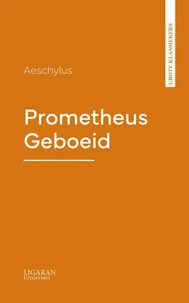Into the dark folds of human destiny, Aeschylus, undisputed master of Greek tragedy, leads us through the tormented events of "Libation Bearers, " the second part of the Oresteia. The scene opens on a mystery shrouded in the shadows of the past, where vengeance and sorrow intertwine in a dense texture of atrocious memories. At the center of this play stands Orestes, son of Agamemnon, whose return from exile is marked by inner conflicts and the weight of inevitability.
The boy rediscovers broken blood ties and injustices perpetrated in the name of a divine justice that seems, at times, to elude human reason. Echoes of the past resonate in the present as the cycle of vengeance approaches an inevitable denouement. "Libation Bearers" is not just an example of revenge: it is an ode to the complexity of human relationships, an exciting reflection on the theme of responsibility and free will, a journey into the tormented soul of a hero forced to come to terms with his origins.
Into the dark folds of human destiny, Aeschylus, undisputed master of Greek tragedy, leads us through the tormented events of "Libation Bearers, " the second part of the Oresteia. The scene opens on a mystery shrouded in the shadows of the past, where vengeance and sorrow intertwine in a dense texture of atrocious memories. At the center of this play stands Orestes, son of Agamemnon, whose return from exile is marked by inner conflicts and the weight of inevitability.
The boy rediscovers broken blood ties and injustices perpetrated in the name of a divine justice that seems, at times, to elude human reason. Echoes of the past resonate in the present as the cycle of vengeance approaches an inevitable denouement. "Libation Bearers" is not just an example of revenge: it is an ode to the complexity of human relationships, an exciting reflection on the theme of responsibility and free will, a journey into the tormented soul of a hero forced to come to terms with his origins.

 , qui est-ce ?
, qui est-ce ?